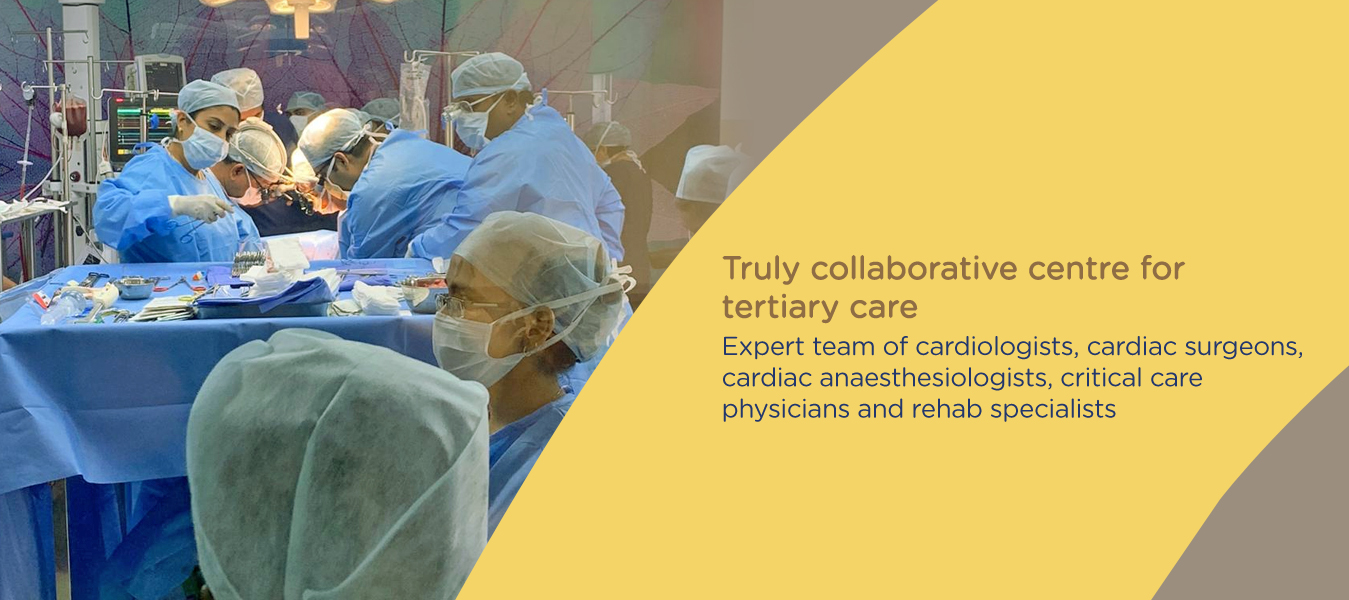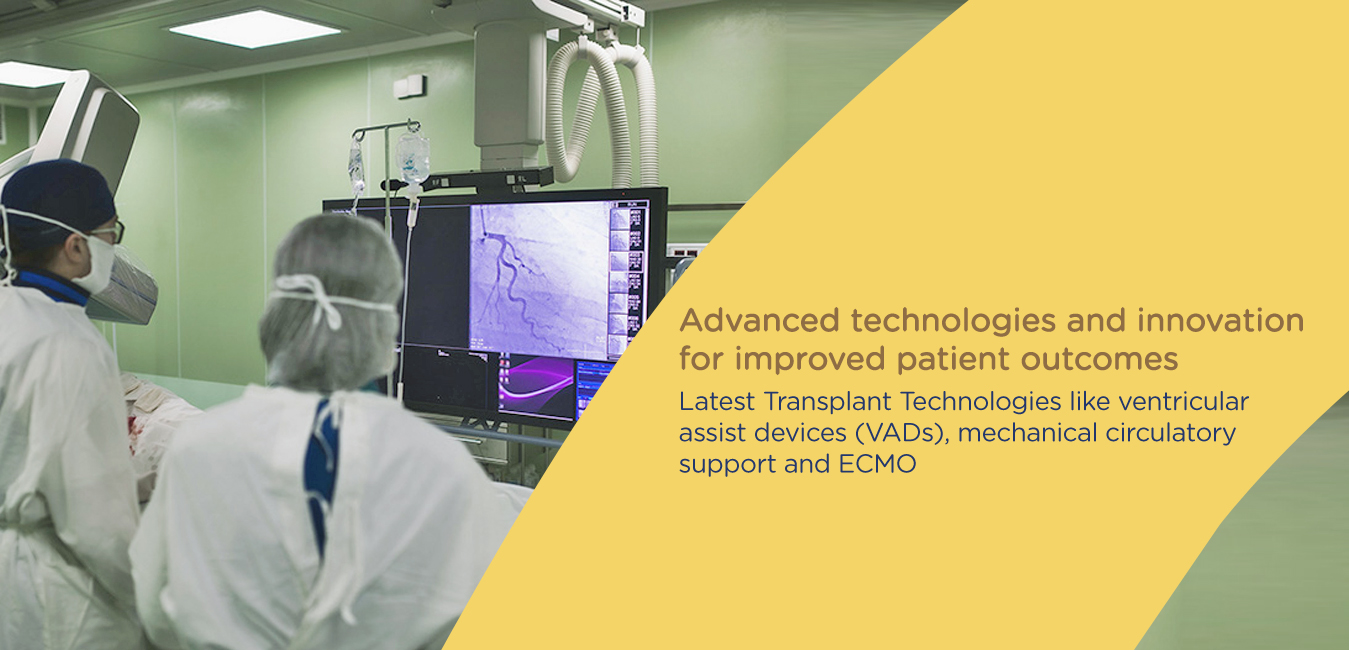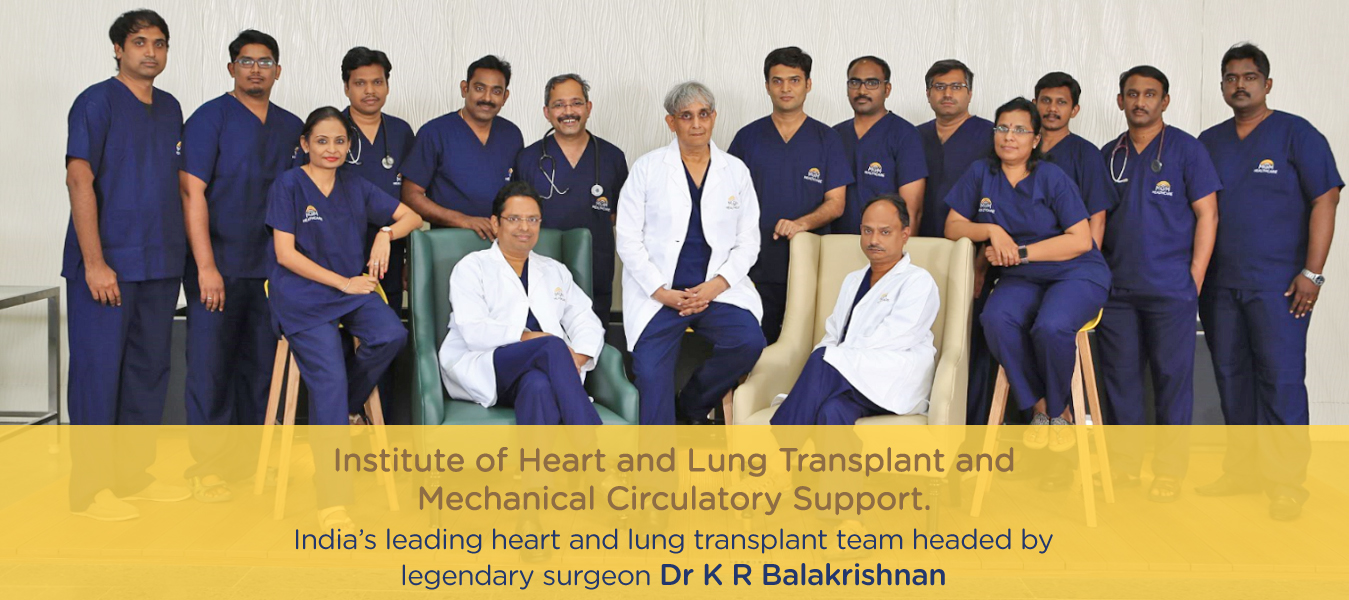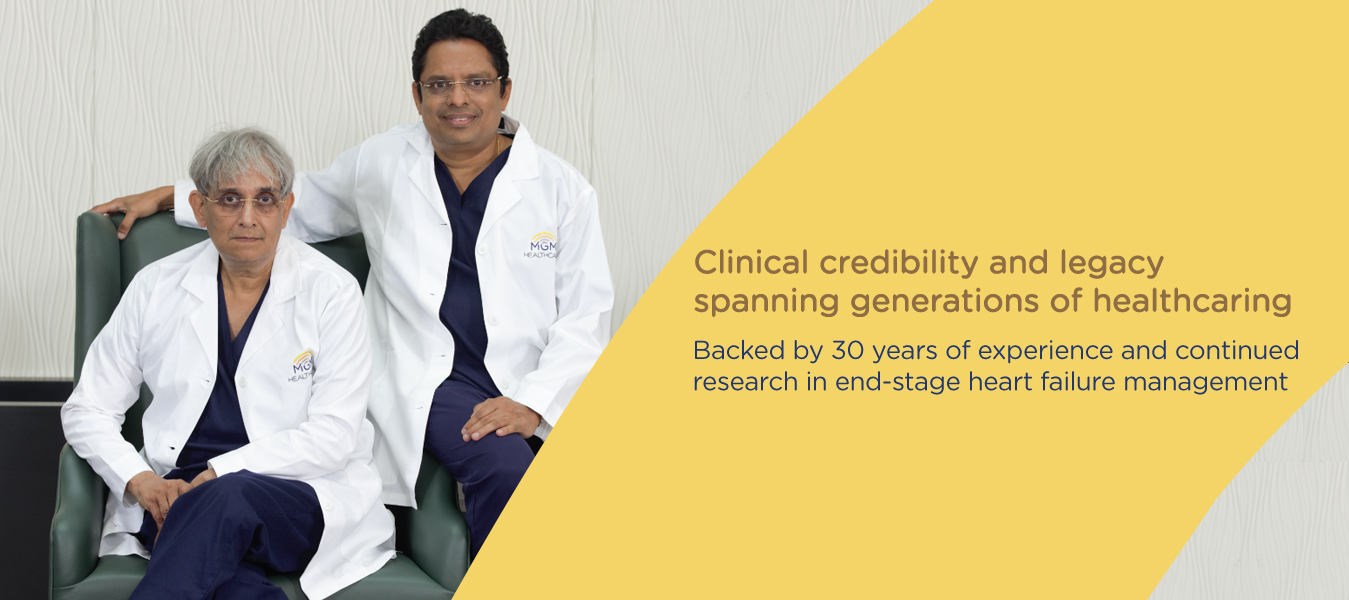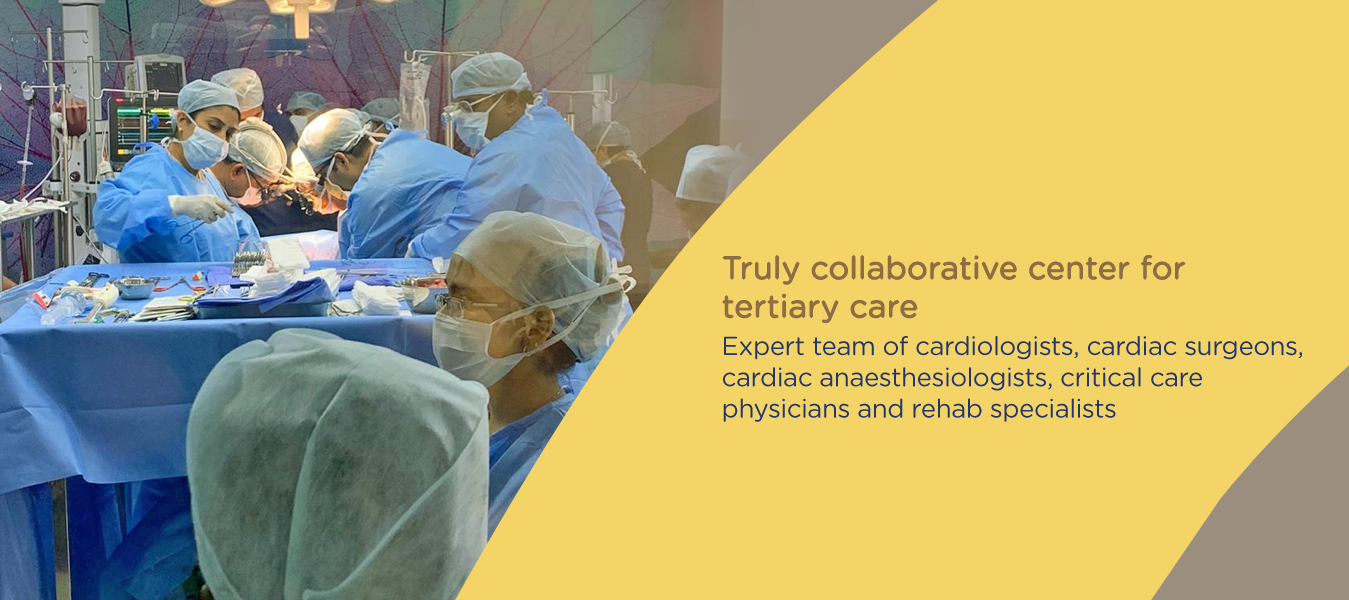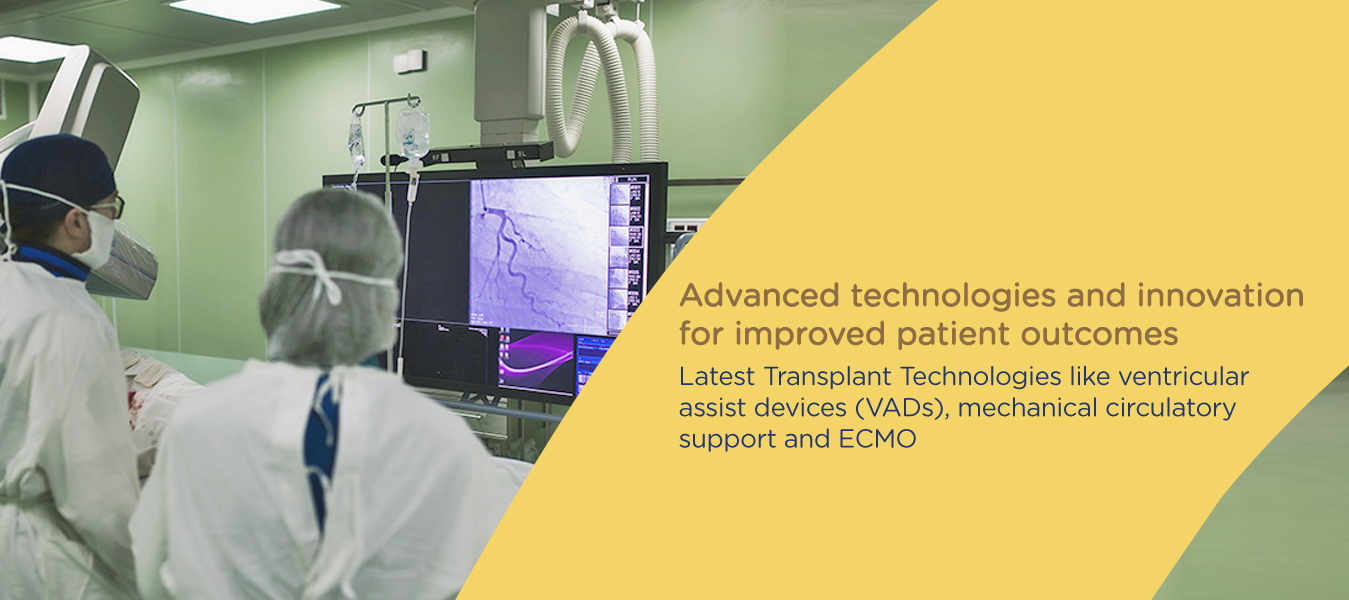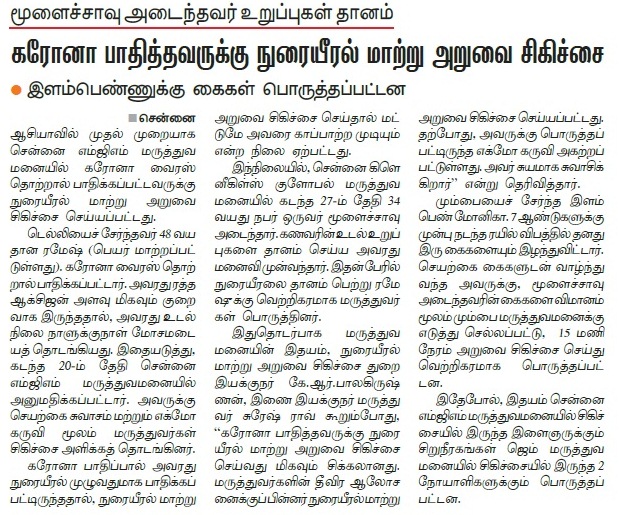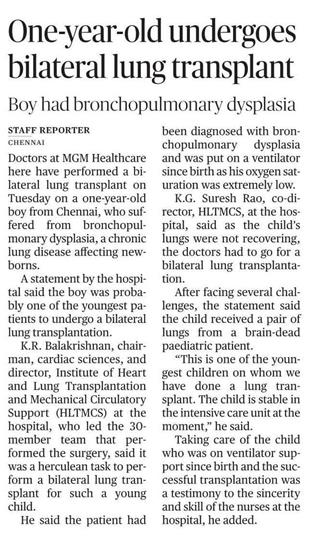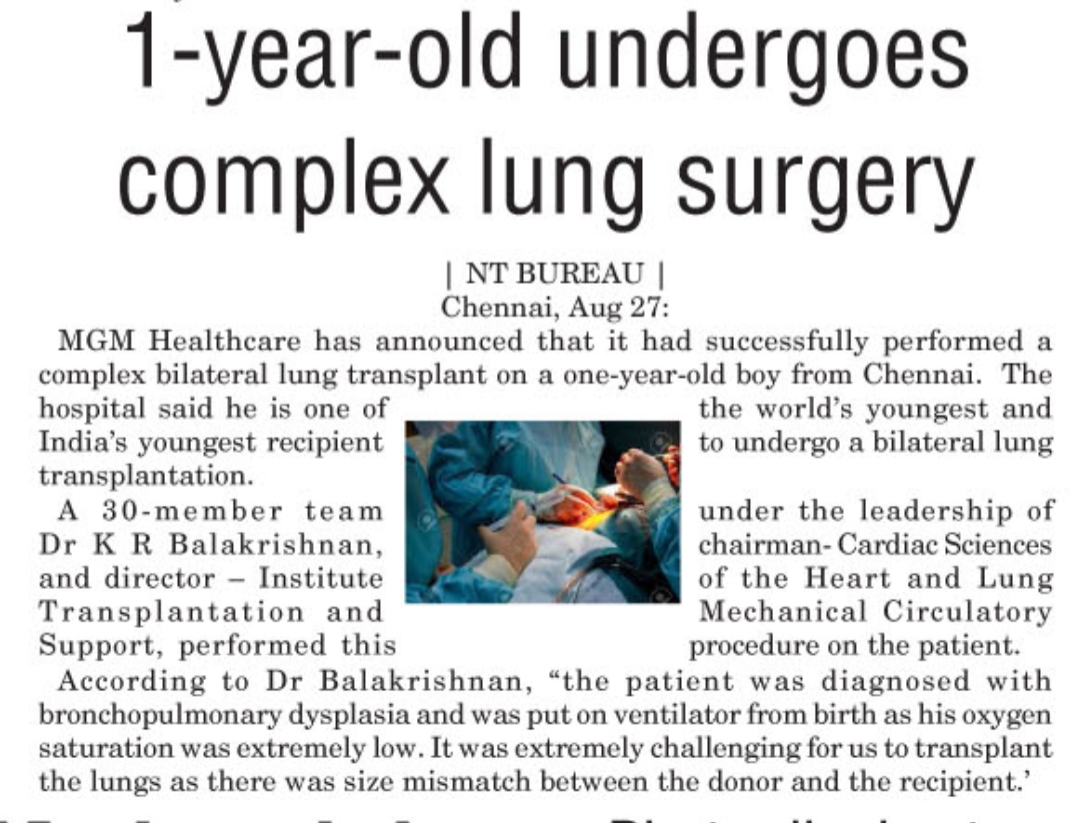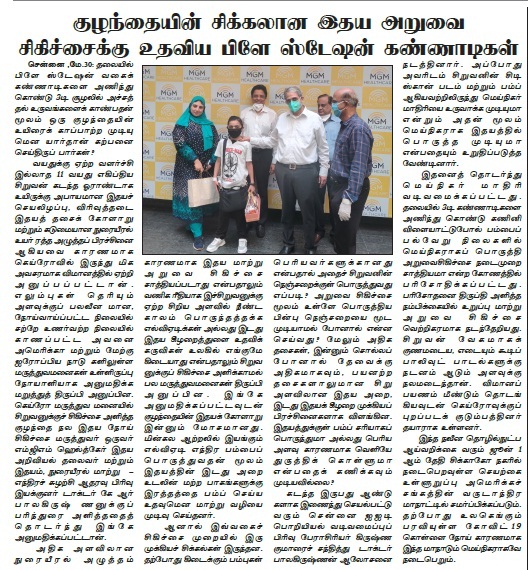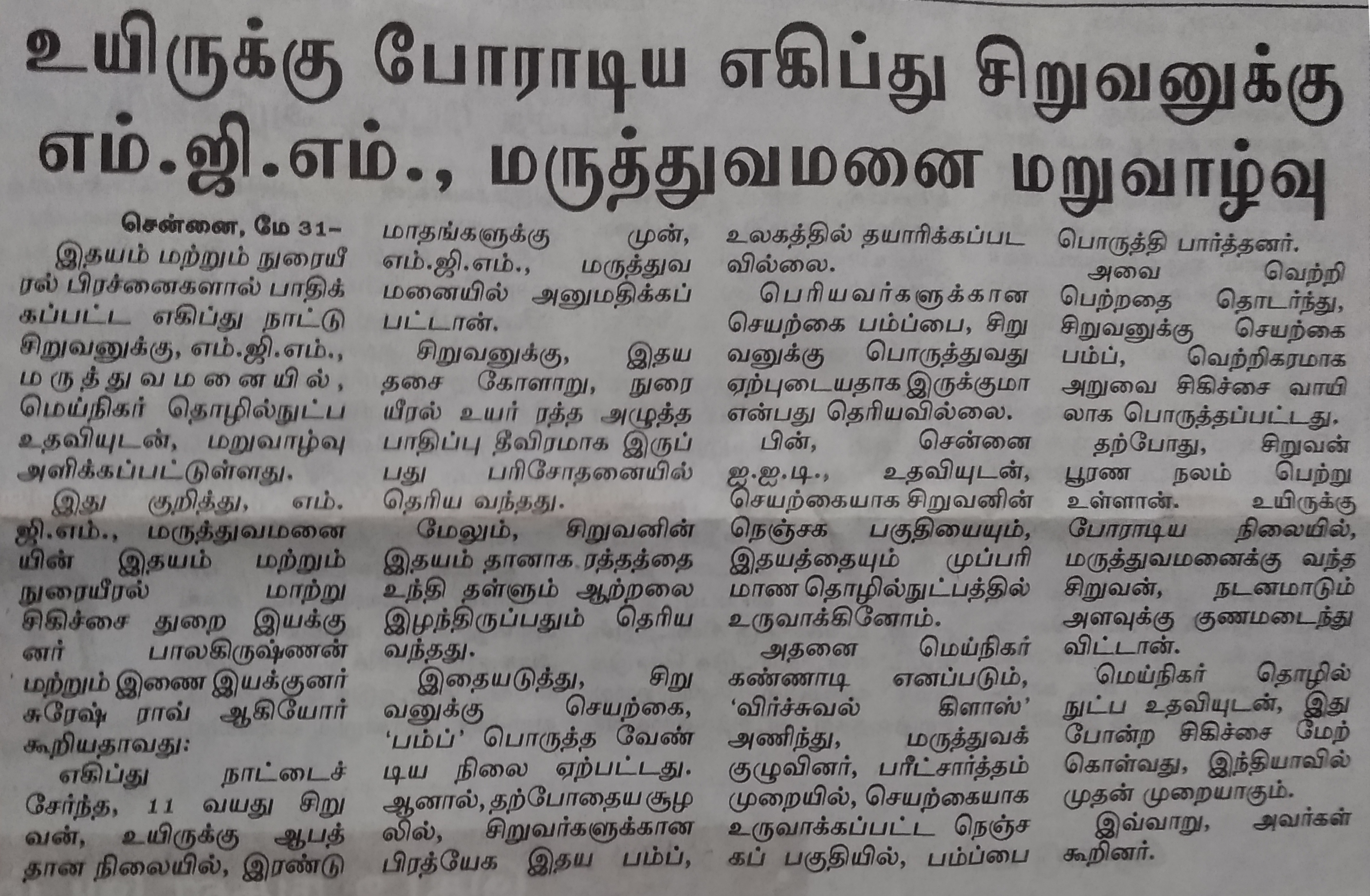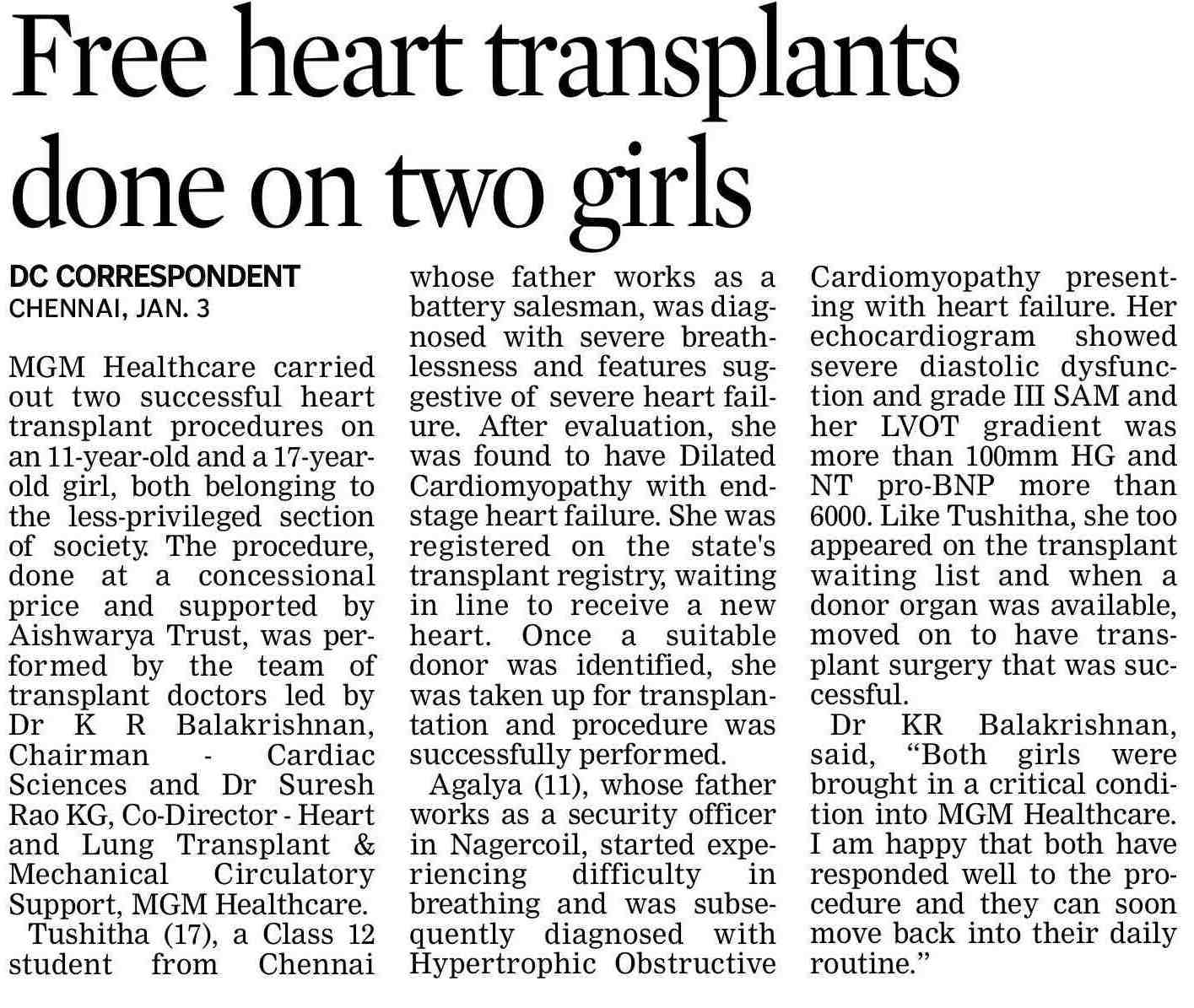Patient Testimonials
Welcome to the Institute of Heart and Lung Transplant and Mechanical Circulatory Support
Formidable Track Record
Under the leadership of Dr K R Balakrishnan, as Chairman of Cardiac Sciences, and the Director of the Institute of Heart & Lung Transplant and Mechanical Circulatory Support, our transplant program is known both for its excellence and for its comprehensive approach to care.
Why Choose MGM Healthcare’s Institute of Heart and Lung Transplant and Mechanical Circulatory Support?
MGM Healthcare, a 400-bedded quaternary care hospital in the heart of the city, proudly introduces its Institute of Heart and Lung Transplant and Mechanical Circulatory Support. Spearheaded by India’s leading heart and lung transplant surgeon Dr K R Balakrishnan as its Director, the institute has been set-up with the vision to utilise the latest in technology, innovation and medical protocols to give people in heart failure a new lease of life.
Director’s Message
Welcome! Thank you for showing interest in the Institute of Heart and Lung Transplant and Mechanical Circulatory Support. Our program here at MGM Healthcare is driven by supreme expertise — the most experienced doctors, advanced technology and medical equipment, futuristic facilities — all for a singular principal purpose, the betterment of patients.
Our team of heart transplant surgeons have performed hundreds of procedures using the most advanced technologies. Our Transplant team are leaders in performing complex heart and lung transplant surgeries and in using mechanical circulatory support and ventricular assist devices that help people live better while waiting for a donor heart. We work with you to chalk out a personalised treatment plan when you are faced with the decision of needing a heart transplant. We help you understand what to expect of the heart transplant process, the surgery itself, potential risks and follow-up care.
Empathy. Expertise. Excellence.
The three pillars of our thought and philosophy, that drive every single member of our dedicated team to deliver exceptional healthcare services
Press Release
Setting world standards of treatment and care for heart & lung transplant procedures
Get in Touch
Talk to our expert team of heart and lung transplant surgeon to understand your condition when you are faced with the tough decision of having a heart transplant. Sometimes, it’s more than just the treatment — it’s also about the right conversations, advice and perspectives.



